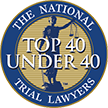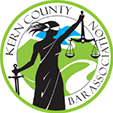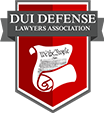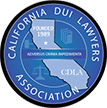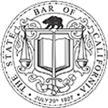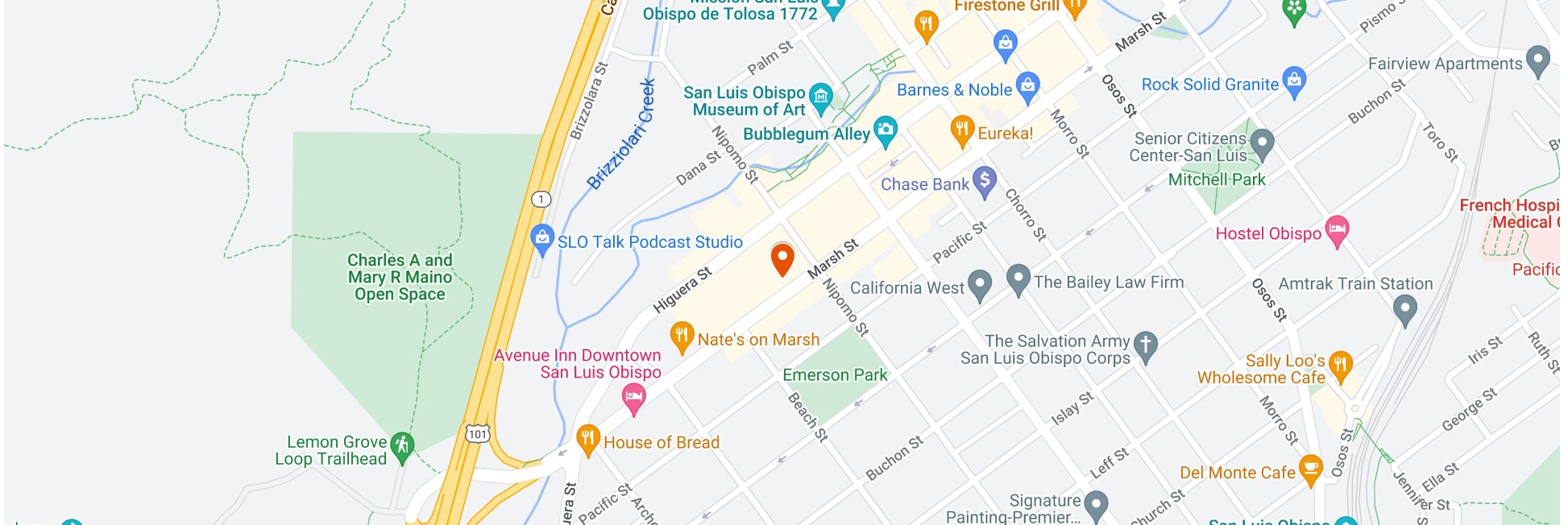A DUI checkpoint is a temporary location established by law enforcement to identify drivers who display signs of drunk driving. The DUI checkpoints were initially designed to increase road safety by arresting and prosecuting drunk drivers. When your vehicle is stopped at the DUI checkpoint, the officers will assess your general conduct and perform various tests to determine if you were drunk driving. If your conduct and the breath test results indicate intoxication, you will be arrested and charged with DUI.
California law stipulates how these checkpoints must be legally carried out, failure to which the evidence collected will be inadmissible in court. If you face an arrest at a DUI checkpoint in California, you can challenge your arrest on constitutional grounds. If the traffic officers failed to follow the proper procedures in setting up the checkpoint or violated your rights during the arrest, you can have the case dismissed.
The legal issues around checkpoint arrests can be complicated, primarily when you deal with a first DUI arrest. Therefore, it would be best to hire and retain a DUI attorney. If you or your loved one battles checkpoint DUI charges, you will require the competent legal guidance that we offer at San Luis Obispo DUI attorneys.
An Overview of DUI Checkpoints in California
A DUI checkpoint is a roadblock placed by law enforcement officers to check if divers passing through the area have been drinking and driving. The Fourth Amendment has rights against illegal search and seizure. These rights require the officers to have reasonable suspicion of criminal activity before stopping your vehicle. Although DUI stops occur when an officer suspects you were drunk driving, police officers can legally set up a checkpoint where drivers are stopped randomly and investigated for drunk driving.
When the officers stop your vehicle at the roadblock, they will ask for your license and registration and look out for the following signs of intoxication:
- Alcohol odor from your mouth or vehicle
- Slurred speech
- Fumbling when asked for your identification
- Trouble answering questions
- Beer bottles or drug paraphernalia in your car
At a DUI checkpoint, an officer does not need probable cause for the arrest. Instead, the stops are random. If your physical appearance or conduct indicates intoxication, the officer will move further to perform DUI tests like the field sobriety test and a breathalyzer test. If you fail the FST and your breathalyzer test indicates a BAC that exceeds the legal limit, you could be arrested and charged with DUI.
Are DUI Checkpoints Legal?
DUI checkpoints are upheld as legal in California. Although probable cause is not needed to stop the vehicles, these checkpoints must meet under the US and California constitutions. Failure to meet these requirements could allow the driver to fight the DUI charges arising from a checkpoint arrest. Legal requirements for California DUI checkpoints include:
- The supervising officers must make all operational decisions. A supervising officer is tasked with determining when, where, and how the sobriety checkpoint will operate. This helps reduce capricious and arbitrary enforcement.
- Neutral criteria for stopping motorists. Before setting up the DUI checkpoint, the supervising officers must devise a random way to stop the motorist.
- Safety precautions must be taken. When choosing where to set up the sobriety checkpoint, safety is critical. Some safety matters that the officers must check include traffic patterns, vehicle visibility, and street layout. When a checkpoint is in an unsafe location, drivers may have a justification not to stop.
- The checkpoints must be official. Drivers and other motorists should be able to notice a checkpoint as they approach the area. This will minimize the surprise and fear of law-abiding. An official checkpoint may be indicated by marked law enforcement officers, warning signs, and flashing lights.
- Officers should detain you for a reasonable amount of time. California law requires a driver to be stopped only long enough to question an observation. A driver who does not exhibit intoxication should be allowed to drive away.
- Checkpoints must be advertised publicly. Law enforcement officers must publicize a sobriety checkpoint at least a week before placing the roadblock. The advertisement could be done on law enforcement websites, local news stations, or newspapers.
Your Rights at a DUI Checkpoint
When all the stipulations are followed, police officers can legally set up DUI checkpoints. Although the sobriety checkpoints are beneficial in reducing instances of drunk driving, you have rights that must be respected to ensure a smooth process, including:
Right to Avoid the DUI Checkpoint
In California, it is not illegal to turn around and avoid a DUI checkpoint. In contrast, it is illegal for a police officer to stop or arrest you for driving away from the checkpoint. If you have had a few drinks and are unsure of your level of intoxication, it would be wise to turn away when you spot a checkpoint ahead. However, most traffic officers set up checkpoints in areas that are difficult for drivers to evade.
While evading the checkpoint, you must do it safely and obey the traffic rules. If you engage in the following dangerous acts, you can still face an arrest and criminal charges:
- Making an illegal U-turn
- Drive on the sidewalk
- Turn into oncoming traffic
Right Against Self Incrimination
When the police stop your vehicle at a DUI checkpoint, they could engage you in a conversation to learn more about your actions before and during driving. However, under the fifth amendment, you have a right to remain silent. You can remain silent if you feel you could incriminate yourself in the conversation.
The only response you should give to the officers is to provide them with the documentation necessary for driving, including the license and insurance registration. If an officer asks about your drinking before driving, you can politely decline to answer. You must understand that arguing with the law enforcement officer could worsen your legal situation.
Rights Related to DUI Testing
Law enforcement officers may request you to complete a field sobriety test or breathalyzer test as part of their DUI investigation. Unless you are an underage driver or are on probation for another offense, you can decline to take these tests. Although declining a field sobriety test is harmless to your DUI case, refusing to take the tests could attract a driver’s license suspension and other penalties.
Right to a Properly Operated Checkpoint
Law enforcement officers must establish and perform investigations at the DUI checkpoints per the legal guidelines. Therefore, you have a right to expect the checkpoint to meet the legal specifications. In addition to making the checkpoint visible to all motorists, other legal specifications include the following:
- Detaining drivers for a short period
- Place the checkpoint in a safe location
- Stop vehicles on a neutral basis
If a DUI checkpoint fails to meet legal requirements, you can argue that your rights were violated and use that fact to defend against the DUI charges.
Right to a Lawful Arrest
Even when there is evidence of sobriety to prove that you were drunk driving, you have a right to be treated humanely during the arrest. Additionally, the traffic officers must read your Miranda rights before the official questioning.
Before you answer any questions from the police, you can exercise your right to have legal guidance. Having a skilled DUI attorney by your side helps you avoid self-incrimination. Additionally, the lawyer can assess your case's factors to build a strong defense against your DUI charges.
Tips to Navigate a DUI Checkpoint in California
DUI checkpoints are designed to capture drunk drivers and arrest them for violating DUI laws. Most of the evidence in these cases will be collected at the checkpoint. Therefore, your actions when the police stop your vehicle and throughout the investigation could dictate the course of your situation. The following are some tips that could use when dealing with law enforcement officers at the sobriety checkpoint:
-
Avoid the Checkpoint when Necessary
If you have been drinking, it would be best to avoid the DUI checkpoint altogether. If you approach a stretch of road and notice the checkpoint, you can safely divert or turn back your vehicle. Although you may know the amount of alcohol you have consumed, it is impossible to predict your blood alcohol content. Therefore, avoiding the checkpoint could save you from a possible DUI arrest.
-
Slow Down When you Approach the Checkpoint
If you do not have a reason to avoid the checkpoint, you must slow down while approaching the checkpoint. Many law enforcement officers disguise the checkpoints as construction sites. Therefore, speeding through could give them a reason to chase you.
-
Cooperate with the Traffic Officers
If your vehicle is randomly stopped at the sobriety checkpoint, you should safely stop and roll down your window. An attempt to speed off could create suspicion that you have been engaging in criminal activity. Additionally, failing to stop when asked to do so by an officer could attract charges for disobeying a police officer. The officers might want to peek inside to catch alcohol odor or spot alcohol in your vehicle. Therefore, anything that could be illegal should be stored under the seats.
-
Have All your Documents Ready
The first thing that the officers will ask for is your driver’s license and insurance registration. You must have all your documents ready to avoid hesitation. Law enforcement officers can interpret your fumbling as a lack of coordination resulting from intoxication.
-
Do Not Admit to Drinking and Driving
After presenting your documentation, the police officers could talk with you to obtain more information about your whereabouts and conduct before driving. In California, you have a constitutional right to remain silent. Talking too much to the officers could cause them to smell the alcohol from your mouth. If you have to answer any questions, it would be best to turn away from the officer. Any admission to drinking could be used against you in a DUI case.
-
Do Not Consent to a Search
Although sobriety checkpoints are legal in the United States, there is a limit to what law enforcement officers can do during these stops. You must decline politely if an officer asks to search your vehicle at a DUI checkpoint. A search of your vehicle could come up with more evidence to support the officer’s theory that you have been drunk driving.
-
Decline the Field Sobriety Test
Police officers at the DUI checkpoint perform a field sobriety test to check your stability. Sobriety tests are not reliable evidence of DUI. Additionally, the fifteen minutes used to perform this test could delay the breath testing causing a rise in your BAC. Therefore, you can decline to take the tests without any legal consequences.
-
Do Not Refuse a Breath Test
If law enforcement officers ask you to take a breath test, it would be best to comply. Although you cannot be forced to take tests, you can still face an arrest and DUI charges without the breath test results. When brought up in your DUI case, a refusal to take a chemical test will attract serious legal and DMV consequences.
-
Call a Lawyer if You Face an Arrest
If, after all the tests and DUI investigation, the officers arrest you for DUI, it would be best to seek legal guidance as soon as possible. If you do not have a lawyer’s contact, you can contact a loved one or friend to find a DUI lawyer.
Defenses to Sobriety Checkpoint DUI Charges
If you face an arrest at a sobriety checkpoint, the prosecutor will use the evidence collected to secure a conviction for your DUI charges. Fortunately, there are various defenses that you can explore to avoid a conviction under these circumstances, and they include the following:
The Checkpoint was Marked
An important rule when setting up a sobriety checkpoint is that it must be advertised to the public. Additionally, the checkpoint must be marked so drivers can notice it from afar. You can fight your DUI checkpoint arrest by arguing that the checkpoint did not meet the legal requirements.
The Officers Were Not Neutral in Who They Stopped
The criteria for stopping vehicles at a DUI checkpoint should be neutral. Therefore, traffic officers cannot randomly stop some motorists and leave others out. If you feel that your stop at a DUI checkpoint resulted from racial profiling or another form of discrimination, you can use this argument to defend your case.
The Field Sobriety Test Was not Conducted Properly
After assessing your general demeanor and conduct at the checkpoint, a field sobriety test is the next step toward a DUI investigation. A field sobriety test is optional and must be carried out for up to fifteen minutes for reliable results. You can avoid a DUI conviction based on the sobriety checkpoint by arguing that the FST was not conducted as per Title 17 regulations.
Mouth Alcohol Affected your Breath Test
If the traffic officers suspect you are intoxicated through your conduct and you fail the field sobriety test, a breathalyzer test is performed. A breath test is one chemical test that offers sufficient evidence of your drunk driving conduct. The traffic officers collect your breath sample by asking you to blow it into the portable breathalyzer device. If your breath test results indicate a BAC of 0.08% or more, you will be arrested and charged with drunk driving.
Unfortunately, the breathalyzer device cannot distinguish alcohol from alcoholic drinks and residual mouth alcohol. Several aspects of your diet and health could cause a false breathalyzer reading. Consumption of a ketogenic diet can cause residual mouth alcohol that is detected in your test.
Additionally, if you have some medical conditions like GERD or type 2 diabetes mellitus, you can argue that the reading on the breathalyzer device was inaccurate. Without your BAC test results, the prosecutor's case against you is weakened, and the likelihood of avoiding conviction is higher.
Lack of a Probable Cause for Arrest
Even when the traffic officers suspect you of drunk driving and stop you at the sobriety checkpoint, probable cause is needed to arrest you and charge you with DUI. The results of all the tests performed at the checkpoint help to form a probable cause. DUI cases based on an arrest without probable cause cannot result in a conviction.
Find a Competent DUI Lawyer Near Me
In California, DU checkpoints are set up to catch drivers who operate vehicles while under alcohol or drug influence. If your conduct suggests drunk driving, the traffic officers will perform further tests to solidify their suspicions. Failing the tests at the sobriety checkpoint could result in an arrest for a DUI-related offense. DUI charges are not only costly but can also affect every aspect of your life.
There are some rules that traffic officers must follow when setting up checkpoints and performing DUI investigations at these locations. For these reasons, not all arrests at a DUI checkpoint are legal. With the guidance of a skilled DUI attorney, you can identify improper conduct at the checkpoint and use it as a basis for your defense.
At San Luis Obispo DUI attorneys, we will protect your rights and craft a solid defense to fight your DUI charges and ensure the best outcome in your case. We serve clients seeking legal guidance to battle checkpoint DUI charges in San Luis Obispo, CA. Contact us at 805-321-1000.


